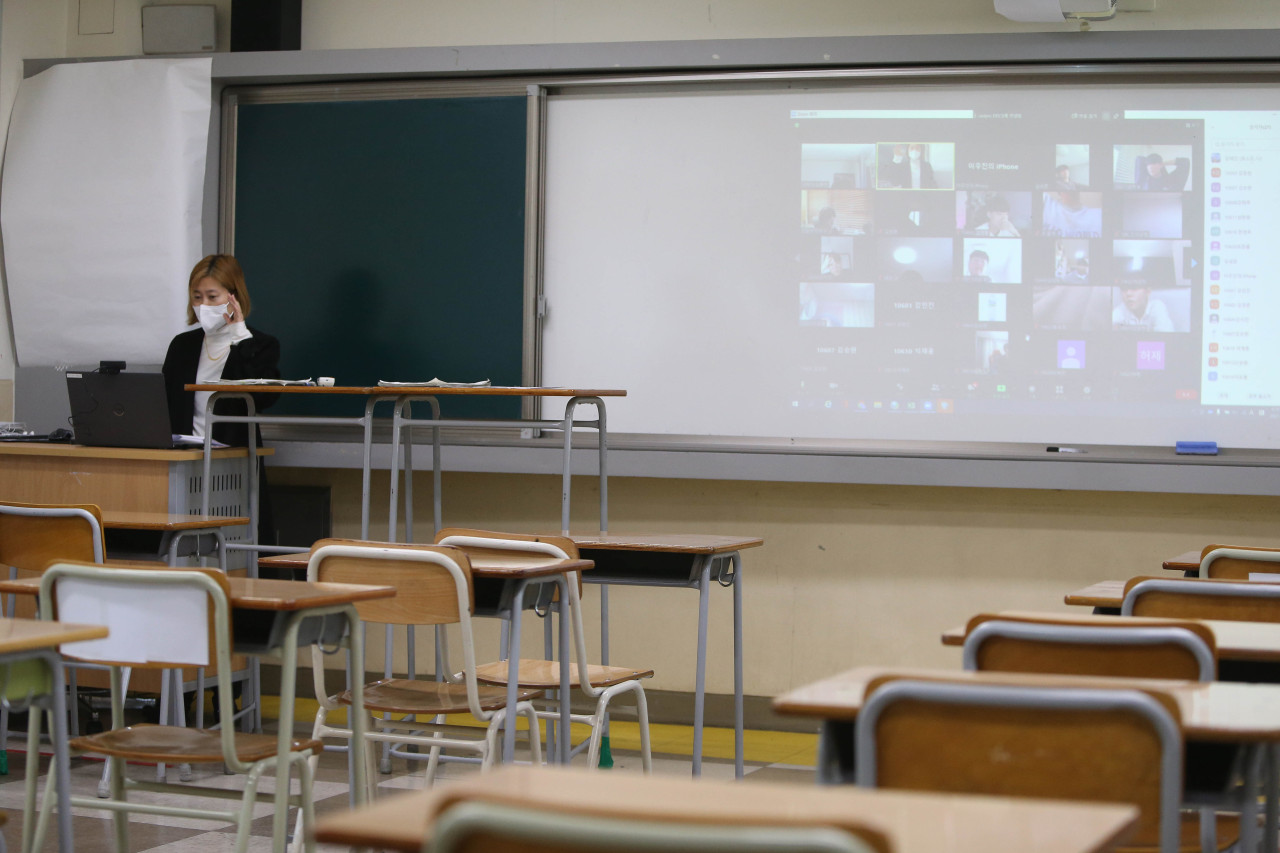 |
A high school teacher conducts online classes in the southeastern city of Daegu last Thursday, a week before the country's nationwide college entrance exam. (Yonhap) |
More than half of South Koreans think an increase in online classes by schools is the biggest setback among changes in lifestyle caused by the COVID-19 pandemic, a survey showed Wednesday.
The poll released by Statistics Korea showed 50.5 percent of those surveyed said they negatively assessed a rise in online education, and 14.8 percent said online classes will likely accelerate down the road.
South Korea has ordered schools to conduct online classes full-time or run them along with in-person classes, depending on virus situations, in a bid to prevent the spread of COVID-19 at schools.
Schools across the country will begin fully resuming in-person classes on Nov. 22 in line with the "living with COVID-19" scheme meant to bring the country gradually back to pre-pandemic normalcy.
The survey showed 92 percent of people aged under 18 have received online classes since the onset of the pandemic early last year. Among them, 60.7 percent said virtual classes were not effective.
As for reasons why online education is not effective, nearly 21 percent said schools are not well prepared to set up online classes, followed by unsatisfactory content with 19 percent.
Meanwhile, the poll showed 91.9 percent think strengthening sanitary measures, such as washing hands and mask wearing, are the most positive change in their life amid the pandemic.
It also said 22.8 percent believe the use of delivery services is expected to further increase down the road amid the non-contact shopping trends.
Of the biggest changes in consumption patterns, 57.9 percent of the surveyed picked the purchase of food at home, followed by consumption of quarantine goods with 25.9 percent.
The survey showed the pandemic negatively affected social interactions, except for ties with family members.
It showed 12.9 percent of the respondents said the relationship with their family members got better due to the pandemic, slightly higher than the 12.7 percent who said their ties with family soured.
But more than 35 percent said their relations with relatives, neighbors and close friends became distant due to the pandemic.
The statistics agency conducted the biennial social survey on social welfare, labor and others on some 36,000 people between May 12 and 27. In regard to pandemic-related questions, there were no comparable 2019 figures. (Yonhap)








